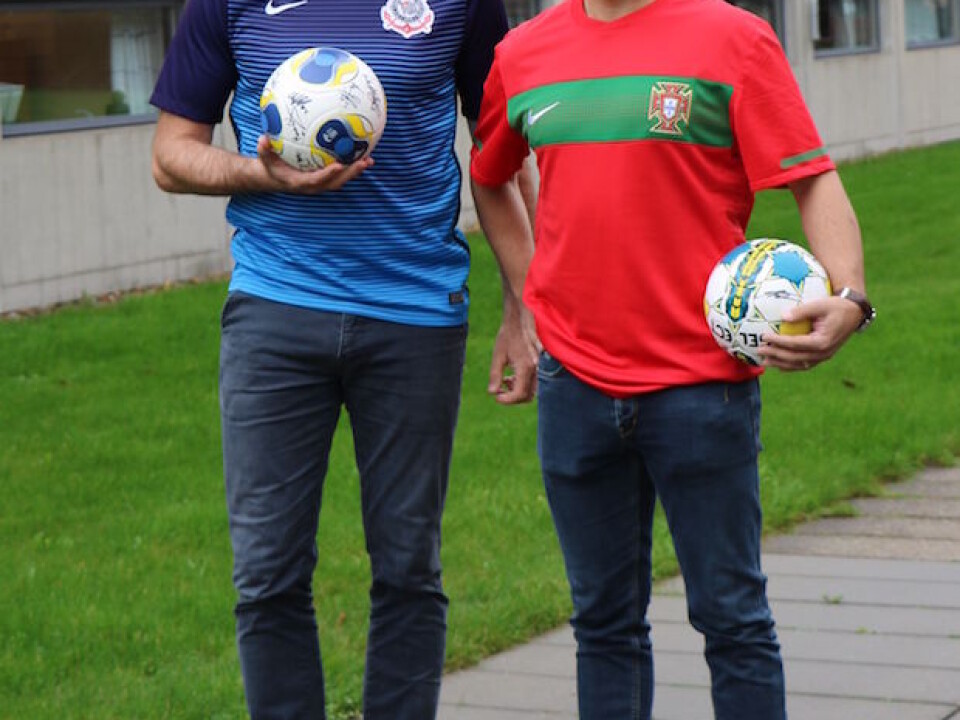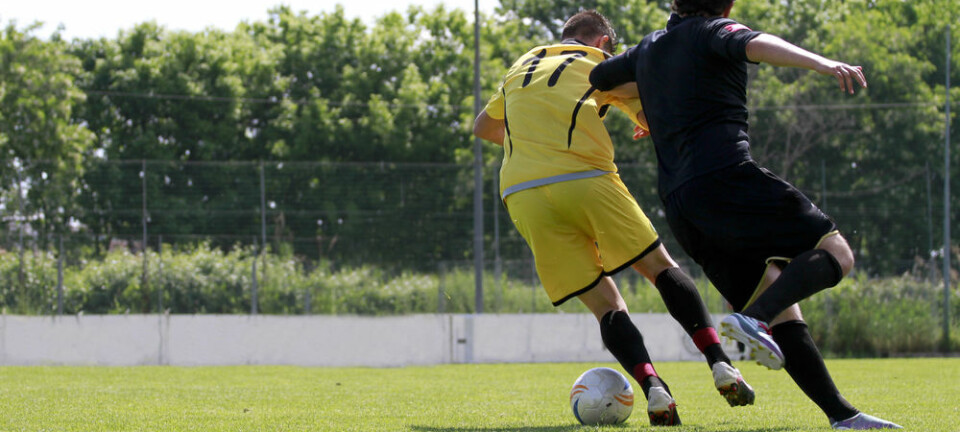
Football is a winning treatment for elderly people with prediabetes
Playing football is great for your health and could even stave off type 2 diabetes. New study in the Faroe Islands reveals improvements in overall health among middle-aged and elderly prediabetic men and women who enjoy a regular kickabout.
For elderly prediabetics, playing football could pave the way to a much healthier life.
For the first time, we have shown that combining specific types of exercise and dietary changes could stave off the development of type 2 diabetes among elderly patients already suffering from prediabetes, which is the precursor for developing full diabetes.
The majority of prediabetics go on to develop type 2 diabetes and improving the health of these patients could help address rising levels of obesity and type 2 diabetes around the world.
Prediabetics experience poor blood glucose regulation and a myriad of other health problems including obesity, arterial hypertension, and low physical fitness. So, for these patients, endurance or strength training alone may not provide the optimal treatment.

These patients are likely to require dietary changes combined with complex exercise training regimes to lose weight while avoiding the loss of muscle mass. And this is where football is key.
Our results are published in the Scandinavian Journal of Medicine and Science in Sports, as a part of a ‘Football is Medicine’ special issue.
Football is close to a miracle cure for some
The health benefits of recreational football training, known as the 'Football is Medicine' concept, has been thoroughly studied during the past decade.
It proves to be a complex exercise training method with broad-spectrum health benefits such as improved blood glucose regulation, and thus lowers the risk of developing prediabetes.

It also leads to improved fitness, favorable changes in body composition, and lower blood pressure. You can read more about the ‘Football is Medicine’ concept below.
Our study is the first to test the effectiveness of football as a treatment for physically weak and elderly men and women who already have prediabetes, with the view to prevent the condition escalating to type 2 diabetes later on. We found that playing football has a significant health benefit and we estimate that football reduces the risk of developing cardiovascular disease by 50 percent, assuming that the participants maintained their training and diet regimes.
Read More: Playing football makes 70-year-olds’ bones young again
Kicking and running work for the elderly too
Our study was carried out in the Faroe Islands, with a total of 50 participants - 25 of each gender - recruited from a national group of prediabetics. Twenty-seven of them underwent a 16 week intervention comprising dietary guidance and twice-weekly football training sessions lasting 30 to 60 minutes.
Simultaneously, a control group of 23 individuals underwent dietary intervention alone.
The duration of the training increased progressively from 30 minutes per session in the first two weeks to 60 minutes per session in the final ten weeks. The participants were aged 55 to 70. They were all diagnosed with prediabetes, had poor physical fitness, and were predominantly overweight. Nearly two-thirds of them had weak bones (osteopenia).
Listen to the “Football as Medicine” podcast with Professor Peter Krustrup.
Kicking the ball improves patient health
We saw that the combination of recreational football and dietary guidance is highly effective; more effective than we had hoped. The participants experienced significant positive effects on both their cardiovascular and metabolic health or body composition.
The group who played football showed significant improvements in health, experiencing an increase in physical fitness and a decrease in blood pressure.
The changes correlated well with what we and our international colleagues have found in previous research, and the results of the current study are estimated to reduce the risk of cardiovascular disease by 50 per cent, assuming that the participants maintain their improved diet and exercise plans.
We previously demonstrated that health improvements can be maintained by training just a couple of times a week, following a three to four month period of football training, in which people trained two to three times weekly.
In our new study, patients showed an improved body composition and blood profile, with decreased cholesterol and total body fat percentage, compared with the group that only received dietary guidance. Both groups showed a similar decrease in resting blood sugar, however, the football group showed signs of greater improvement in blood sugar regulation compared with the group who only changed their diet.
Read More: Buying new football boots? Here’s what to look for according to scientists.
Running drills and healthy eating: A combination for success
We saw that combining football training and healthy eating was a more effective and healthier way to lose weight than relying solely on dietary guidance.
For example, during the 16 week trial, while both groups lost weight, the group who played football lost at least an additional two kilograms of body fat and gained nearly one kilogram of muscle mass compared to the dieting-only group.
In other words, individuals who combine dietary guidance with physical exercise, such as football training, can lose a significant amount of weight while at the same time achieving an increase in muscle mass and functional capacity.
This is unlike dieting alone, where the individual loses weight but becomes physically weaker due to the loss of fat and muscle mass.
Read More: Football saves the bones of prostate cancer patients
Football as treatment for prediabetes
Our study suggests that we can prevent type 2 diabetes through an intervention that combines exercise and diet. It also shows that football is an effective and broad-spectrum form of exercise that works for both women and men. Perhaps it is a real winner.
Recomending football for 60 and 70-year-old female patients might sound unusual. But our study showed that all participants enjoyed the so-called 'football fitness' regime - a form of football where the the focus is on a thorough warm-up, ball drills in pairs, and games on small pitches.
None of the participants sustained any serious damage to muscles, bones, or joints, and we saw excellent attendance even though the training took place in the winter.
Moreover, the participants formed good relationships, had fun together, and enjoyed the social aspects of the game - so much so that many of them are still participating in the 'football fitness' program.
On a larger scale, our study shows that diet in combination with exercise has great potential to treat prediabetic patients, even when they are elderly, overweight, and have a low level of fitness.
---------------
Read this article in Danish at ForskerZonen, part of Videnskab.dk (to follow soon)
The study was carried out collaboratively between researchers from the University of Southern Denmark's Department of Sports Science and Clinical Biomechanics and the University of the Faroe Islands with funding from the Faroese Research Council (Sjúkakassagrunnurin), the Faroese Football Association (FSF) and the Faroese Diabetes Association (Diabetesfelag Føroya).










